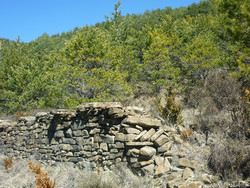Better management practices for planting forests
In the 20th century, national forest services performed extensive afforestation in the Mediterranean mountain areas. Establishing forests in areas where the preceding vegetation or land use was not forest resulted in several changes over time, particularly in landscape structure, soil properties, and water and sediment yield. Although recent studies have examined the environmental impact of afforestation, this has not been the case for the Mediterranean's humid mountainous regions. To address the issue, the EU-funded MED-AFFOREST (Afforestation management in Mediterranean mountain areas: Evaluating the environmental consequences) project set out to develop a deeper understanding of the effects of afforestation and land abandonment procedures on hydrological and carbon dynamics, soil properties and landscape structure. To achieve its objectives, MED-AFFOREST used the Central Spanish Pyrenees as a test site to compare the consequences of naturally revegetated areas such as shrubs and forests, and afforestation areas. Project partners carried out landscape metrics analyses to gain insight into the key trends of landscape structure and its transformation processes. They examined various landscapes over a 50-year period beginning in 1956. Findings show that changes in soil properties were insignificant after a half century of land abandonment, even during a period of afforestation. Small differences were recorded in the SOC concentrations, aggregation and aggregate stability, soil organic pools and C mineralization. Results were inconclusive with respect to the negative consequences caused by afforestation. In addition, hydrological studies demonstrate that afforestation reduced the water yield and the number of floods compared to bare areas and abandoned lands. Thanks to MED-AFFOREST, forest management and environmental planners are better equipped to implement afforestation once land has been abandoned and to proceed with effective policies.
Keywords
Mountain areas, afforestation, landscape, land abandonment

